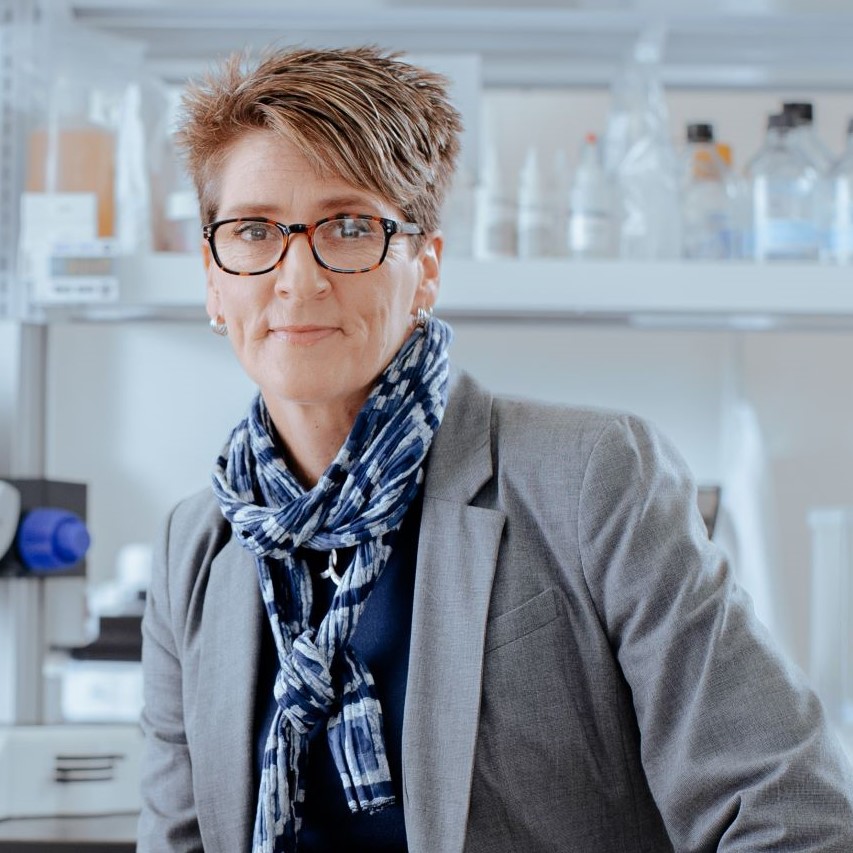by Buck Institute
January 31, 2023 . BLOG
Autophagy: Recycling for our cells
Cellular waste management is important for aging.
Just as communities and businesses have to treat and dispose of their garbage, so too do the cells in our bodies. Beyond simply waste management, a cell’s strategies for taking out the trash turns out to be one of the most exciting areas of research in the biology of aging.
 Buck scientist Malene Hansen, PhD, who is also the Institute’s Chief Scientific Officer, explains that a cell’s garbage and recycling center, which is a process called autophagy, is involved in many of the things that go wrong with aging. “Autophagy is a main example of a cell process related to aging that we can study to improve human health,” she says.
Buck scientist Malene Hansen, PhD, who is also the Institute’s Chief Scientific Officer, explains that a cell’s garbage and recycling center, which is a process called autophagy, is involved in many of the things that go wrong with aging. “Autophagy is a main example of a cell process related to aging that we can study to improve human health,” she says.
The term autophagy means “self-eating” or “self-digestion.” While that might sound alarming, it is a very beneficial action that a cell performs to maintain its health and to respond to stress.
Basically, says Hansen, cells figure out how to keep house by taking a piece of membrane to form a kind of bag that sequesters various proteins or cell organelles targeted for disposal, then delivering them to lysosomes for processing. Lysosomes are the recycling centers of the cell, containing enzymes that break down unneeded molecules. As a result, unnecessary or harmful cellular components are broken down, and then recycled into new molecules that the cell can use to build new and better components.
Autophagy is necessary for general maintenance of the cell (continuous turnover of cellular components, including organelles), as well as disaster response (to stress such as starvation, infection or excess heat). It also plays a role in normal cell development and immune responses.
With age, autophagy function declines, which may lead to a backup of damaged and toxic proteins and other cellular components, says Hansen, and contributes to cancer development, neurodegeneration, and aging. “Although we don’t yet know exactly how autophagy decreases with age, it is becoming increasingly clear that preserving it can reduce the problems caused by damaged molecules that accumulate with age and in turn improve healthspan and lifespan,” she says.
Hansen and her lab members wonder what can be done to slow or prevent the decline of autophagy.
“There are a lot of questions,” she says. Autophagy is a multi-step process involving more than 40 proteins and things can go awry at any step along the chain of events. Problems can occur with the membrane that forms the trash bag, selection of which trash goes into which bag, or in the transport and delivery of the bags to the recycling center.
“These pathways in the cell decline over time, which can be like running out of trash bags, or potholes can develop on the transportation highways, or the recycling center can run out of supplies,” she says. Any of these problems can make the intricate process less efficient, allowing buildup of harmful compounds, which impairs cell functions.
With all of the advantages that functioning autophagy offers, it is natural to wonder if people can manipulate the process to not only prevent decline but boost it. It has been popularized as a “hack” to prevent aging, and help combat not only one, but many age-related diseases.
There are many ways to naturally boost autophagy, such as through fasting, restricting calorie intake, following a ketogenic diet, or via a personal favorite of Hansen’s, exercising. “Humans can exercise to induce autophagy, but whether that increases lifespan in humans is not known,” she says. “Humans are challenging as experimental subjects when it comes to asking questions about the molecular mechanisms of aging.”
That’s why Hansen’s lab uses worms and cell cultures to work out how autophagy affects aging, with the goal of being able to ultimately help prevent multiple age-related diseases in humans. “Working at the intersection of aging and autophagy, we hope to identify new mechanisms to potentially find ways to treat people in the future,” she says.

SHARE